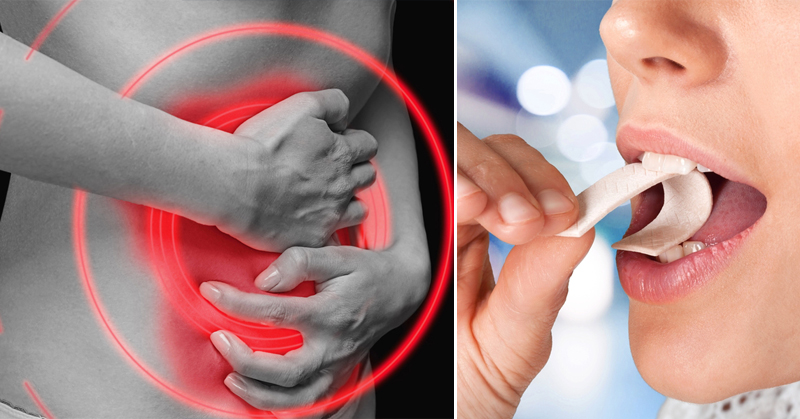Do you pop a piece of gum on your way back to the office after lunch? If you do, you’re in the company of millions of Americans who keep the sticky substance near by. Some use it as a quick breath-freshener while others chomp away by habit. Whether your favorite flavor is mint, cotton candy or cinnamon, it’s likely that your chewing gum is putting you in danger of some serious health risks.
The Dangers Of Titanium Dioxide
For years, chewing gum manufactures have been incorporating an ingredients known as titanium dioxide into their product. Titanium dioxide is a tiny metal compound that poses dangerous health threats to the body. It’s used in non-particle form to create a bright white pigmentation in paints, plastics and other products, including chewing gum.
The FDA generally recognizes this compound as safe, so there’s no law against adding it to products on store shelves. However, scientists are beginning to question the safety of the compound. A recent study published in the journal NanoImpact shows that non-titanium oxide ingredients (including titanium dioxide) can severely impact gut health.

The Study
In the study, researchers exposed small intestinal cells to a meal’s worth of nanoparticles over a period of four hours to test acute exposure. They also exposed the cells to three meal’s worth over five days to test chronic exposure. Chronic exposure to titanium dioxide nanoparticles in the diet:
- Weakened the intestinal barrier
- Slowed down metabolism
- Triggered inflammation
- Weakened the gut’s defense against pathogens
- Blocked nutrient absorption of key nutrients like iron, zinc and fatty acids
In case that wasn’t enough damage, researchers found that the nanoparticles also blunted the effectiveness of the microvilli in the small intestine. Microvilli are tiny projections from small intestinal cells. They work to absorb nutrients that our bodies need in order to survive.

A 2012 study from Arizona State University found that titanium dioxide nanoparticles existed in 5% of the products they tested. They found nanoparticles in Twinkies and mayonnaise samples. In 2015, Dunkin Donuts stopped using non-titanium dioxide in their powdered sugar donuts after facing public pressure to cut out the ingredient.
To avoid foods that contain titanium oxide nonparticles, it’s important to avoid processed foods, including candy and other sweets. And of course – chewing gum.
More Reasons To Stop Chewing Gum
Titanium oxide isn’t the only reason you should quit your chewing gum habit. Many chewing gum products also contain emulsifiers to help retain their flavor, and to keep gum from sticking to your teeth. Emulsifiers act like detergent to your digestive tract. They throw off the natural balance of your gut flora. Research even suggests that certain emulsifiers used as food additives could contribute to the development of colon cancer.
Breath-freshening Alternatives
If you’re worried about the onions you had on your sandwich at lunch, skip the gum and try one of these more natural breath-freshening alternatives instead:
- Munch on parsley or mint leaves
- Drink plenty of lemon water
- Try Coconut Oil Toothpaste
- Try oil pulling with coconut oil
- Pack a toothbrush
- Floss after meals
Sources:
Efema
Binghamton University
Science Direct
Thank Your Body


